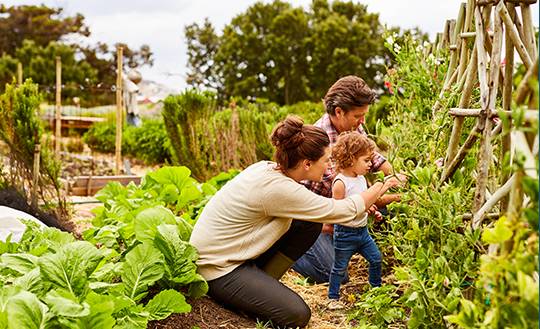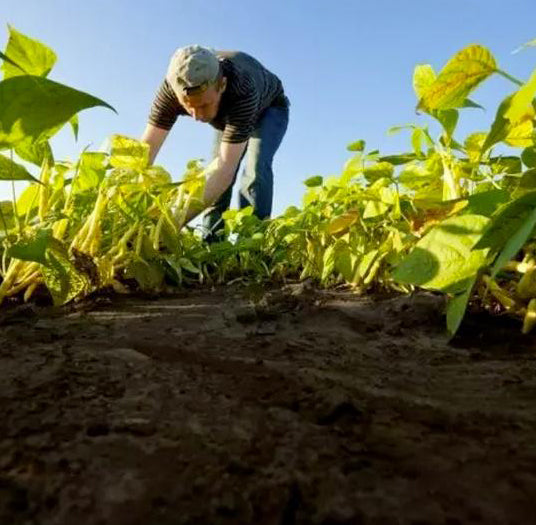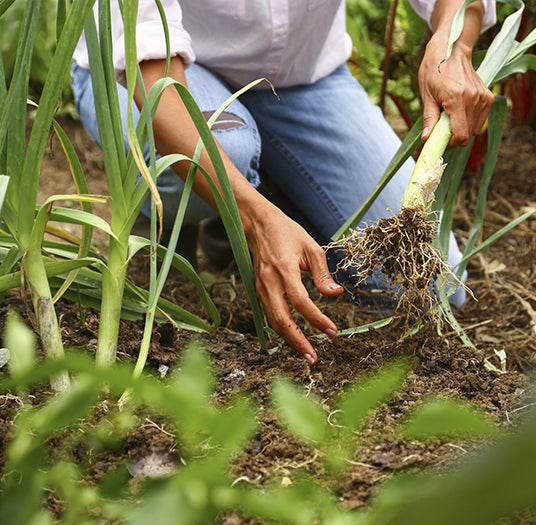
Our Company
Rogitex is a family-owned and operated business that has been around for 40+ years. Throughout our journey, we have become more conscious of our environment. We developed a strong interest in the sustainability of agriculture. We felt our responsibility lay with the sustainable utilization of Earth's resources to ensure the successful continuity of life on this planet we call home.
With that in mind, we effectively decided to radically change our operating model and utilize the knowledge gained through these years of experience and put them to good use by promoting regenerative agricultural practices to growers and farmers alike and contributing to the sustainable food supply for our kids' and following generations. Our goal would be to reduce our dependency on chemical inputs.

One statement that really resonated with us:
"We do not inherit the Earth from our ancestors, we borrow it from our children."
This famous saying carries a lot of weight because it is none other than our responsibility to sustainably utilize Earth's resources to ensure the successful continuity of life on this planet, we call home.

Securing A Healthy Future From The Ground Up
99% of what we consume, fruits, vegetables, and meats, need Soil to grow, making us a Soil dependent society.
Soil is humanity's most valuable commodity. History has shown a direct correlation between society's survival and society's ability to utilize Soil to grow food.
If one considered how much agricultural land is available to grow our food, one would realize that we do not have much of it, making it so much more valuable.
WE encourage sustainable practices and the use of natural inputs as nature intended, hoping for future generations to have access to healthy produce.

Food For Thought
The "Green Revolution," which gained considerable momentum in the early '50s, was a turning point in agriculture, leading to the mass introduction of chemical fertilizers and agri-chemicals. Although quickly praised for their benefits, their long-term effects were never appropriately considered.
The addition of chemical inputs adds plant nutrients to the Soil at the expense of Soil Health. These practices introduced by the "Green Revolution" would change humanity's perception of Soil from a complex living being to a simple growing medium. In the process, we harmed the microfauna and funga essential to life.
Many soil deficiencies result from the use of chemical inputs.
Spoon-feeding the plants with nutrients to grow has caused a loss of nutrients in the food we consume. The "Green Revolution" practices only view some macronutrients as necessary to plant growth which is far from the truth. Additionally, the constant availability of these macronutrients in an inorganic form has made crops and plants lazy and susceptible to diseases! They no longer search for their food, essentially removing the need to grow their roots to scavenge nutrients and create symbiotic relationships with soil microbial life.
These elements are at the center of the Soil's loss of structure and overall health, which have significant repercussions on humanity's health. The overuse of inorganic fertilizer has made its mark. Agricultural lands have lost their once humus-rich topsoil, losing their soil organic matter, making it harder to grow crops. Humus-rich Soil is essential to thriving microbial activity and fertile Soil. Sustainable life on Earth requires microbially active humus-rich Soil.
Pre-"Green Revolution" era, Soil was rich in humus with 7-12% organic matter. The cumulated years of heavy fertilizing have drastically changed that. Today, a grower is lucky if his Soil organic matter is anywhere near 2%.
Treating the cause has always been more effective than treating the symptoms.
Fortunately, it is easy to remedy and get back on track to healthier Soil. We can achieve great results through regenerative farming practices in a small time frame.





